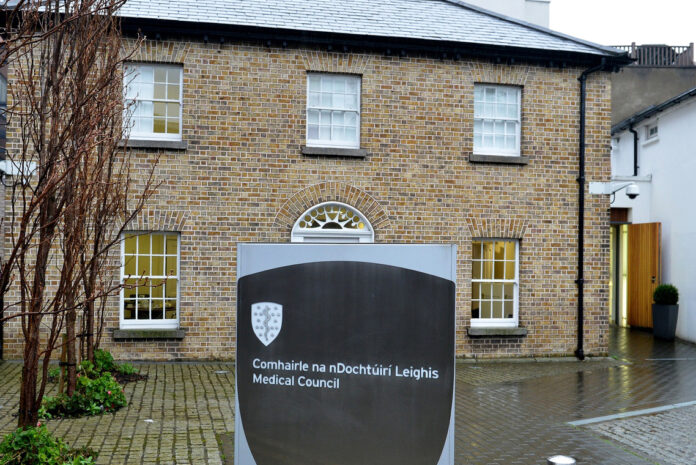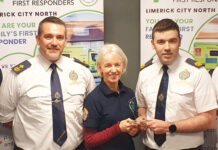
A HOSPITAL consultant has appeared before a medical inquiry over his direction that a vulnerable young patient at University Hospital Limerick did not have the capacity to decide if she should be resuscitated in the event of cardiac arrest.
Dr Hassan Zaid was accused of poor professional performance over his care of a young Leaving Certificate student with cerebral palsy at UHL seven years ago while acting as a locum consultant.
Dr Zaid appeared before a hearing of the Irish Medical Council’s fitness-to-practice committee on Tuesday after he was the subject of a complaint by the girl and her mother over his dealings with them at UHL on April 8, 2016.
They believed that the doctor had improperly presumed that the girl should not be resuscitated because of her physical disability.
Dr Zaid (53), who now works as a consultant gastroenterologist at Bon Secours Hospital in Tralee, accepted he had not demonstrated sufficient respect for the patient and offered an unreserved apology to her and her family for any upset caused during her admission to the hospital.
However, the inquiry heard that the doctor does not accept a complaint of poor professional performance.
At the outset of the hearing, counsel for the IMC, Neasa Bird BL, said Dr Zaid faced six allegations of poor professional performance over his treatment of the patient and her mother.
Ms Bird claimed Dr Zaid’s “Do Not Attempt Resuscitation” (DNAR) order for the patient was not clinically warranted or in her best interest.
She said Dr Zaid had wrongly presumed or concluded that the patient lacked the capacity to make her own decision about resuscitation or had failed to facilitate her participation in the decision-making process.
Ms Bird said he had also failed to communicate adequately with the patient’s mother and to obtain further information about the girl’s quality of life.
One allegation claimed Dr Zaid had told the patient’s mother that her daughter would have no quality of life and had remarked what was the point of “someone jumping on her chest”.
It was claimed that the doctor had discussed the matter with the patient’s mother in a corridor where the girl could overhear the conversation.
Ms Bird said it would be alleged that Dr Zaid had recorded the DNAR order on the girl’s medical records without any or adequate agreement.
She claimed he had failed to communicate about the DNAR order with the girl’s mother and aunt in an appropriate manner, while also failing to treat the patient with adequate dignity and respect.
The FTP committee was told that the 18-year-old girl had been admitted to UHL with a high temperature and vomiting on April 7, 2016.
Tests confirmed she had contracted sepsis but that she made a full recovery. Ms Bird said Dr Zaid had not completed his specialist training at the time but was acting up as a locum consultant due to the shortage of consultants at UHL.
She explained the DNAR order by Dr Zaid was revoked within a few hours after the girl’s family had raised concerns with the hospital.
Lawyers for Dr Zaid had told the IMC that he had considered a DNAR order because he felt the patient was extremely ill and not in a fit state to discuss the matter but that it had nothing to do with her cognitive ability.
Ms Bird said a report by an expert witness, Professor Shaun O’Keeffe, had concluded that cumulatively the allegations would amount to poor professional performance if judged by the standards of consultants but not non-consultant hospital doctors.
The inquiry heard Prof O’Keeffe believed the doctor’s actions represented “an over-hasty and erroneous conclusion”.
The inquiry was halted after counsel for Dr Zaid, Michael Counihan SC, made a successful application to stop the hearing on the basis that his client would give an undertaking not to repeat the conduct which was the subject of the complaint.
Mr Counihan pointed out that Dr Zaid, who has also worked in St James’s Hospital in Dublin and the Mercy Hospital in Cork, had been dealing with a “very difficult hospital situation” on the day as he was providing care for 70 patients, including 40 new patients.
The barrister said Dr Zaid’s dealings with the patient were “out of character” with his normal standards and professionalism.
He also noted that there was no policy in UHL at the time on DNAR orders but one had been introduced in early 2017.
The committee’s chairperson, Ronan Quirke, said it was decided it was an appropriate case for undertakings to be sought from the doctor in question.
Mr Quirke observed that the patient and her family would have preferred to have given evidence to the inquiry.
However, he said it was appropriate to ask for undertakings as the committee believed it was a singular event in which Dr Zaid had let himself down.
Mr Quirke acknowledged that it must have been “a very distressing event” for the patient and her family.
However, he said the committee was satisfied that Dr Zaid does not represent a danger to the public and he had shown insight into what happened and apologised for his conduct.
Dr Zaid, who qualified as a doctor in Sudan in 1995, also provided the FTP committee with an undertaking that he would complete a course in communicating with vulnerable patients within 12 months.









